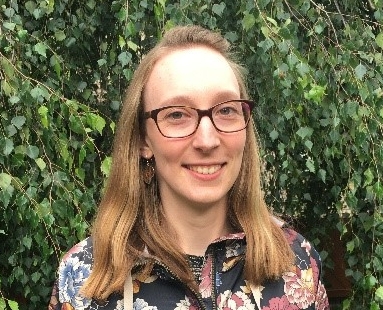- Graduate School GLOMAR
- PhD student members
- Janina Bösche
Janina Bösche
| Institution: | University of Bremen |
| Office: | MARUM I, room 2690 |
| Phone: | +49 421 218 - 65705 |
| E-mail: | [Bitte aktivieren Sie Javascript] |
| Other webpage(s): | Janina's MARUM web page |

PhD Project
Metabolic activity and influences on elemental cycles of the microbial community in marine seep sediments
Microbes are ubiquitous and involved in countless processes on our planet. Likewise, in marine sediments they play a key role for example in the degradation and transformation of organic matter. Thereby they are taking influence on processes which are driving the elemental cycling in the ocean.
Especially the carbon cycle is increasingly relevant for us to understand, since methane (CH4) and carbon dioxide (CO2) are greenhouse gases, which affect global temperature when they are released into the atmosphere. Marine sediments are among others contributing to the CH4 production, but the emission is widely controlled by a microbial process known as the anaerobic oxidation of methane (AOM). In this process microbial consortia of sulfate reducing bacteria and methane oxidizing archaea oxidize CH4 to CO2, which has a lower greenhouse effect.
The last decades of research have unraveled a diversity of their metabolic capabilities, but their remote habitats and the lack of a pure culture leave some challenging questions about their metabolic activity and growth rates so far unsolved. Stable isotope labeling experiments are powerful tools in organic geochemistry to tackle these questions, but so far these methods require sample collection and laboratory-based incubations, which subsequently change fundamental in-situ conditions, like temperature and pressure.
In my Ph.D. project, I am therefore investigating the microbial communities around methane seep environments by combining the analysis of samples obtained with a new in-situ incubation method and stable isotope tracer experiments. For the analysis of biomolecules and their isotopic signatures I am using conventional and new techniques to fill our gaps in knowledge of these fascinating deep sea microbes.
The project is part of the research unit of the MARUM Excellence Cluster “The Ocean Floor as REACTOR” and supervised by Excellence Chair Prof. Dr. Victoria Orphan of the California Institute of Technology (Caltech). My affiliation at MARUM is the Organic Geochemistry group, where I am advised by Prof. Dr. Kai-Uwe Hinrichs.
Thesis Committee
| Prof. Dr. Victoria Orphan | California Institute of Technology (CALTECH), Pasadena, California and University of Bremen MARUM Excellence Chair |
| Prof. Dr. Kai-Uwe Hinrichs | University of Bremen |
| Dr. Julius Lipp | University of Bremen |
| Dr. Gunter Wegener | Max Planck Institute for Marine Microbiology (MPI-MM), Bremen |


